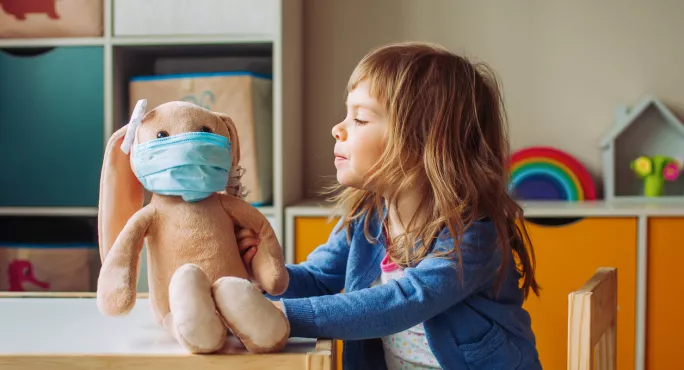Stop treating early years staff as if we’re expendable

As of last night, every school and non-essential establishment has been forced to close because of the national lockdown. But, at the same time, thousands of children and staff will be herded into early years education.
Why has this one area of education been overlooked? The decision is, at best, a contradiction and, at worst, nothing short of neglect.
Enough! We are not expendable. Or are we?
Given that 97 per cent of early years staff are female, this feels like common sexism, alive and well in a 21st-century pandemic. Shame on you, Gavin Williamson. And - on behalf of every scared early years educator in England today, feeling overlooked, undervalued and ignored - shame on every single member of a government unable to recognise the worth of people who devote their lives to society’s youngest children.
Coronavirus: overlooking the safety of early-years staff
Fear of Covid-19 transmission is now more concerning now than at any time since March last year. If this is the case, why is early years the only area of education where the rules, safety and lives of the staff are wholly overlooked?
I have worked in the early years sector for 40 years and have witnessed a revolution. It is a personal mantra of mine that if you want to see creativity and artistry in its purest form, walk into the local preschool. Preschool teams observe, analyse and plan for each child in their care to help them achieve the early learning goals.
The professionalism, compliance and quality is reflected in the fact that 95 per cent of childcare providers on the early years register in the UK were judged as “good” or “outstanding” as of 31 March 2019, with 93 per cent of children under five in the UK attending an early-years setting.
Then came Covid. I watched as the education secretary, in his address on 30 December, told the nation that many schools would start the term remotely because of rising rates of infection. He spoke about how it was important to stop the spread of coronavirus in the community, and how he would be ramping up testing for staff in schools.
Meanwhile, doctors were relaying horrific hospital stories. We were constantly being told to stay inside and under no circumstances to mix with other households.
On and on Williamson went. After 40 minutes, he’d still neglected to mention early-years education. However, the secretary of state had not forgotten about us: a directive was issued immediately telling us, effectively, to get back to work.
A sector with no voice
According to the science, young children are less susceptible to the virus and their symptoms are mild. However, the new variant has raised questions about young children’s ability to transmit Covid-19 to adults.
In the meantime, early years staff are being forced to mix indoors with other households (11 in our case) - which is supposedly an outlawed practice - thus continuing to spread the virus. Early years has limited personal protective equipment. We are unable to social distance. And, of course, there is no mention of vaccination for staff.
All nine of my own staff group contracted Covid at work back in March. At the time, an industry joke was trending that asked, “Who is looking after the children?” as so many of us were unusually unwell.
So, why does the government repeatedly fail to acknowledge the teachers in early years? I suggest that it is because, if you do not mention them, they will go under the radar. Williamson took the calculated risk that we will not put up a fight. You see, the early years sector has no voice. Unlike the teacher unions, the organisations that act on our behalf are ineffectual.
I am furious at the attitude of this government, which doesn’t believe that the women and men who work with our youngest children are even worth a mention.
To the people of my profession: find your voice. Stop being overlooked and ignored because, this time, your health and even your lives are at risk.
Jane Pescow is the manager of a preschool in North London
You need a Tes subscription to read this article
Subscribe now to read this article and get other subscriber-only content:
- Unlimited access to all Tes magazine content
- Exclusive subscriber-only stories
- Award-winning email newsletters
Already a subscriber? Log in
You need a subscription to read this article
Subscribe now to read this article and get other subscriber-only content, including:
- Unlimited access to all Tes magazine content
- Exclusive subscriber-only stories
- Award-winning email newsletters
